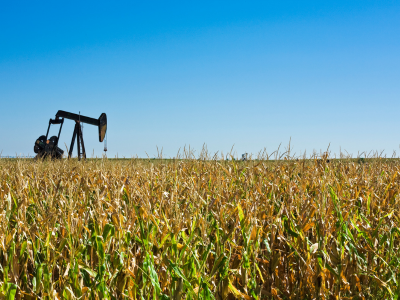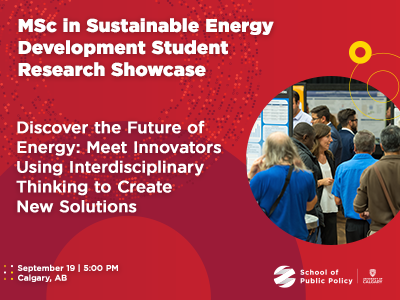The Environmental and Community Impacts of Inactive Oil and Gas Wells

The Canadian Climate Institute and the University of Calgary’s School of Public Policy are pleased to host an online workshop on The Environmental and Community Impacts of Inactive Oil and Gas Wells.
The purpose of the Workshop is to share a collection of new academic research and public opinion data on an important policy issue with key decision-makers in government and the academic community. The Workshop will be held under Chatham House Rule. Presentations will be 20 minutes long, with 10 minutes allotted for questions at the end.
Agenda
9:00 am Welcome from the University of Calgary and Traditional Territory Acknowledgement
9:10 am Welcome from the Canadian Climate Institute
9:15 am David Coletto, Abacus Data: Views of Canadians living in communities nearby inactive oil and gas wells
9:45 am Krystyna Lloyd, Argyle Group: Views of First Nations and other community stakeholders with respect to inactive oil and gas wells
10:15 am Break
10:20 am Gregory Galay, University of Calgary: Modeling firms’ decision thresholds between inactive and active well status
10:50 am Mary Kang, McGill University: Measurements of methane emissions from abandoned oil and gas wells in Western Canada
11:20 am Jennifer Winter, University of Calgary: Comparing provincial, territorial and federal oil and gas methane regulations: emissions coverage and potential gaps
11:50 am Q&A and Closing Remarks
Presentation Links
David Coletto, Abacus Data
- Presentation: Views of Canadians living in communities nearby inactive oil and gas wells
- Detailed results: Orphaned & Abandoned Oil/Gas Wells: A Survey of Residents Living near wells in Alberta, Saskatchewan and British Columbia
Gregory Galay, University of Calgary
- Presentation: End-of-Life Management of Oil Wells
Mary Kang, McGill University
- Presentation: Measurements of methane emissions from abandoned (and suspended) oil and gas wells in Western Canada
- Supplementary material: Kang et al. 2023. “Environmental risks and opportunities of orphaned oil and gas wells in the United States.” Environmental Research Letters 18 074012. Press release.
Krystina Lloyd, Argyle Group
- Presentation: Rightsholder and Stakeholder Perspectives on Inactive Wells
- Report: Inactive Oil Well Engagement: What We Gathered
Jennifer Winter, University of Calgary
- Presentation: Provincial, territorial, and federal oil and gas methane regulations: emissions coverage and potential gaps
- Supplementary material: Dobson, V. Goodday & J. Winter. 2023. “If It Matters, Measure It: A Review of Methane Sources and Mitigation Policy in Canada.” International Review of Environmental and Resource Economics 16(3-4), pp. 309-429
Speaker Bios
David Coletto
David Coletto is Chair, CEO and a founding partner of Abacus Data a full-service public opinion research and strategy firm with offices in Ottawa and Toronto. With over a decade and a half of experience in the industry, David founded Abacus 13 years ago and since then it has grown into one of Canada’s most respected market research firms. He earned a PhD in Political Science from the University of Calgary in 2010 and is an adjunct professor at Carleton University. He is the host and producer of inFocus with David Coletto a new podcast that explores the intersection of public opinion, politics, public policy, and consumer behaviour.
Gregory Galay
Gregory Galay is a Postdoctoral Associate in the Energy and Environmental Policy Unit at the School of Public Policy in the University of Calgary. Prior to joining the School of Public Policy he was a senior economist in the Ontario ministry of finance and treasury board secretariat. He holds a PhD in economics from the University of Guelph.
Mary Kang
Mary Kang is an assistant professor in the Department of Civil Engineering at McGill University. Her research focuses on energy transition, climate and environmental impacts of energy systems, and subsurface hydrology. Her current projects are on characterization and mitigation of methane emissions from abandoned and marginal oil and gas wells and other oil and gas infrastructure. Previously, she was a postdoctoral fellow in the Earth System Science department at Stanford University. She received a Ph.D. in Civil and Environmental Engineering from Princeton University; a Science, Technology, and Environmental Policy certificate from the Woodrow Wilson School of Public and International Affairs; and a M.A.Sc. and a B.A.Sc. in Civil Engineering from the University of Waterloo. Between her time at Waterloo and Princeton, she worked as a water resources engineering consultant based in Reston, VA.
Krystyna Lloyd
Krystyna is a Vice President at Argyle with deep experience in public, stakeholder & Indigenous engagement, community & public relations. Throughout her career, Krystyna has led the engagement programs informing a range of high impact infrastructure, energy and policy projects across Canada. She is a recognized and trusted facilitator with proven expertise in gathering the feedback and perspectives needed to inform meaningful decision making. Krystyna is most proud of the relationships she has formed, and the causes she has supported, as an advocacy communications and settlement communications professional.
Jennifer Winter
Jennifer Winter is an Associate Professor in the Department of Economics and the School of Public Policy, University of Calgary. Her research evaluates climate policies, and examines the consequences and trade-offs of government regulation and policy on energy development. She has testified to the Senate of Canada and House of Commons on emissions pricing policies, and has advised governments in Canada in numerous capacities. Dr. Winter is actively engaged in increasing public understanding of energy and environmental policy issues, and she serves on several boards and advisory committees.


